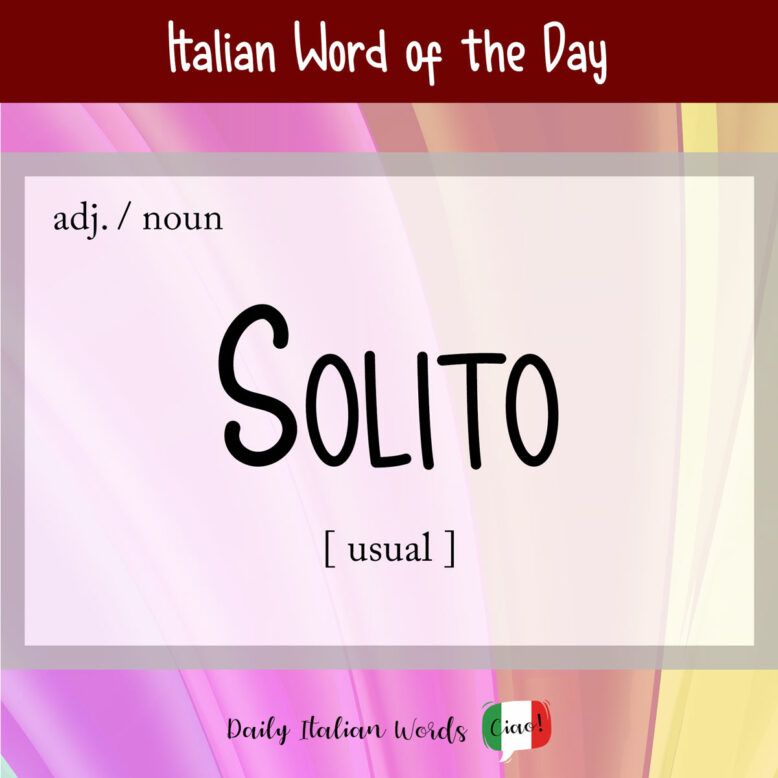Each of us has our own habitual routines, the things we do regularly, no matter what. In Italian, the word solito captures this sense of the usual and habitual things we do in life.
solito
usual

Solito can be both an adjective and a noun in Italian, but in either case, the best translation tends to be usual.
When it is an adjective, the ending changes according to the gender and number of the noun its describing. For example:
- il solito posto = the usual place
- la solita pizzeria = the usual pizzeria
- i soliti discorsi = the usual conversations
- le solite lamentele = the usual complaints
Ci vediamo sempre al solito bar.
We always see each other at the usual coffee shop.
Solito, as an adjective, can also refer to a person who is habitual or unchanging. If you are describing a man, it remains il solito, but for a woman, it becomes la solita. You can use it with or without an adjective to clarify if the person is habitual in general, or with something more specific.
Sei sempre il solito!
You’re always the same!
Sei sempre la solita bugiarda!
You’re still just as much of a liar as you always were!
You may come across the expression essere solito fare qualcosa, which means to be in the habit of doing something. In the present tense, it translates as usually, while in the past, it becomes used to do. Compare the two examples below:
- Marco è solito mangiare alle sette. = Marco usually eats at seven.
- Marco era solito mangiare alle sette. = Marco used to eat at seven.

When solito is a noun, it remains masculine and appears in the following expressions:
- come al solito = as usual (e.g. come al solito sei in ritardo = you’re late as usual)
- di solito = usually (e.g. non mangio carne di solito = I don’t usually eat meat)
- più del solito = more than usual (e.g. ho più fame del solito = I’m hungrier than usual)
- meno del solito = less than usual (e.g. ho meno sonno del solito = I’m less sleepy than usual)
If you’re out at a meal at your favourite restaurant and you ask for il solito, it means you want the same thing you order whenever you visit. In English, we’d say the usual.
Prendo il solito, grazie!
I’ll have the usual, thanks!

The opposite of solito is insolito, which means unusual, uncommon or extraordinary in the most literal sense, but also odd, strange or abnormal.
- Ho sentito un rumore insolito. = I heard an unusual noise.
- C’era qualcosa di insolito riguardante la scomparsa di suo padre. = There was something odd about the disappearance of his father.
Idiomatic expressions featuring ‘solito’
Siamo alle solite!
Literal translation: We’re at the usuals!
English meaning: Here we go again!
È sempre la solita storia!
Literal translation: It’s always the usual story!
English meaning: It’s always the same old story!
Heather Broster is a graduate with honours in linguistics from the University of Western Ontario. She is an aspiring polyglot, proficient in English and Italian, as well as Japanese, Welsh, and French to varying degrees of fluency. Originally from Toronto, Heather has resided in various countries, notably Italy for a period of six years. Her primary focus lies in the fields of language acquisition, education, and bilingual instruction.


